Cot death: How Anne Diamond helped save thousands of babies
- Published
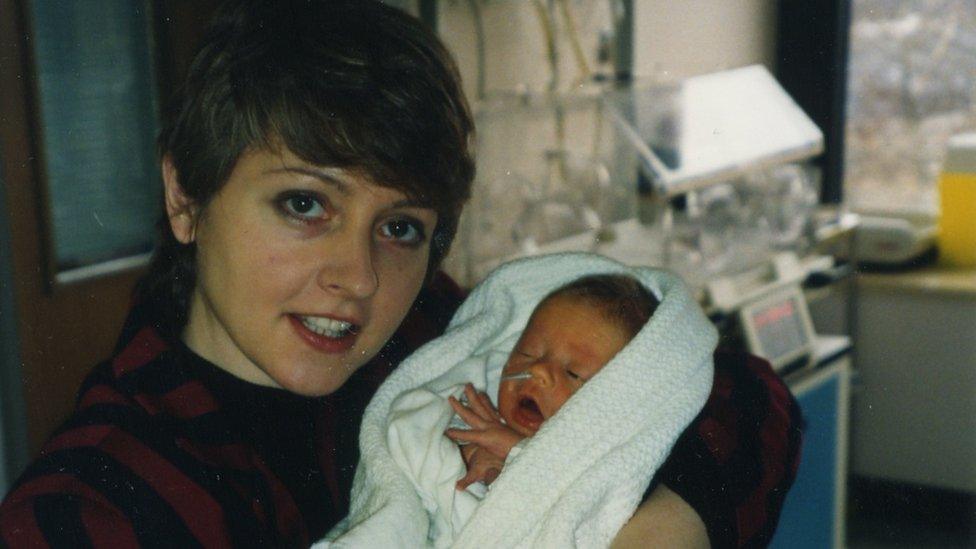
Twenty-five years ago the TV presenter Anne Diamond lost her baby son Sebastian to cot death. But out of that very public tragedy came a positive outcome. Her resulting campaign urging parents to put their babies to sleep on their backs has been credited with drastically reducing the number of sudden infant deaths in the UK.
The 12th of July was Diamond's eldest son Oliver's fourth birthday. A party was planned for later in the day and her then husband Mike Hollingsworth remembers waking up feeling grateful that Sebastian, a "robust, smiley baby", hadn't woken early for his bottle.
He went out into their garden and was clearing away toys in preparation for a birthday party, when he heard Diamond screaming.
"I'd never heard a scream like it before," he said.
"I looked up at the third floor of the building, and saw Anne grabbing at the bars which were on the nursery windows... she was grabbing them so hard I thought she was going to pull them off."
Running inside, he found his wife hugging Sebastian, sitting in a chair and rocking and rocking.
Diamond still feels horror when she relives that day.
"He was in a position he often was in the morning, he was on his tummy and his arm was hanging out of the cot," she said.
"I went to touch his arm and it was cold. It was stone cold.
"I remember screaming, at the top of my voice, 'The baby's dead, the baby's dead'."
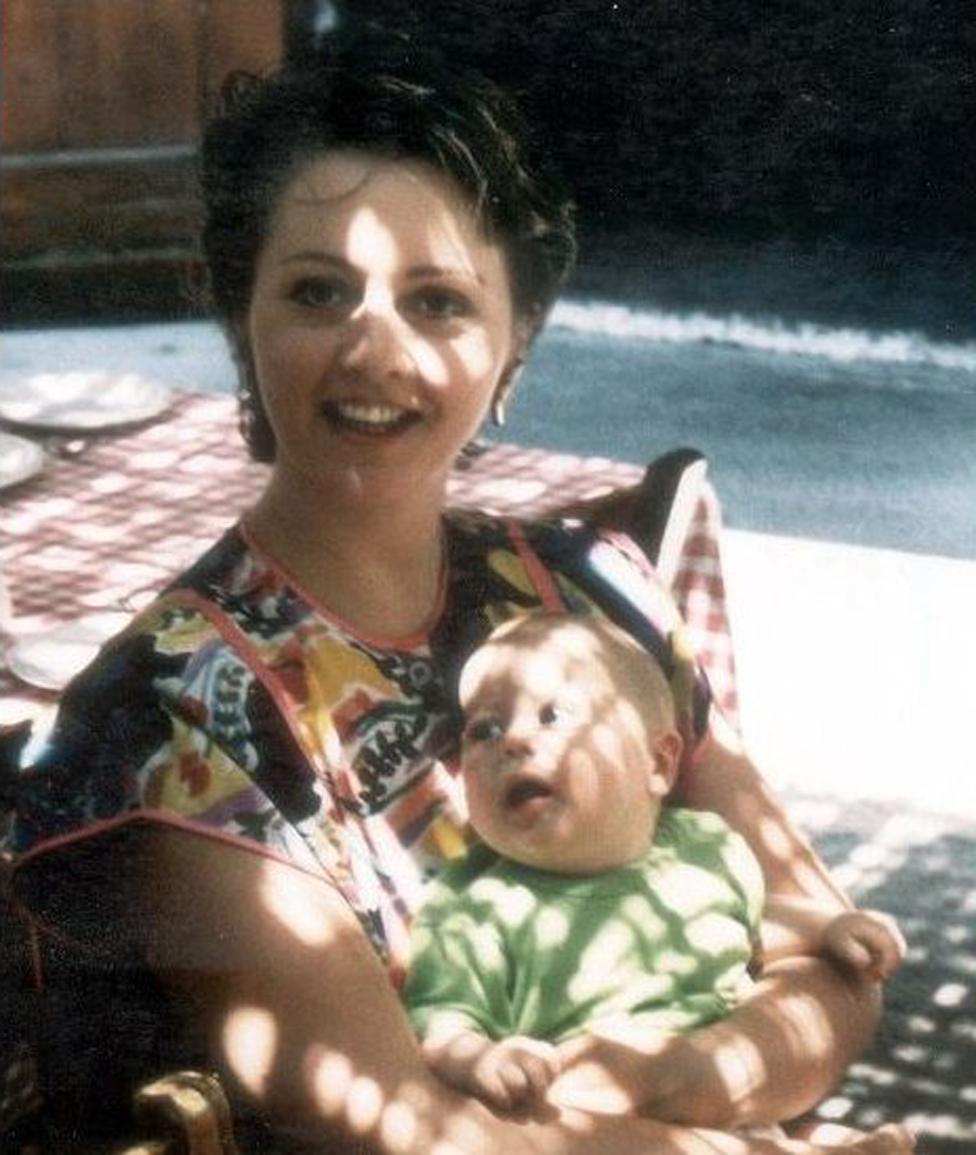
Anne lost her four-month-old son Sebastian on her eldest son's birthday
She vividly remembers holding him in her arms.
"You'd expect a beautiful, warm, milky little baby, but instead I had this absolutely stiff, cold statue.
"But still I wanted to hold him and cuddle him," she said.
The rest of the day passed in a blur, with police officers coming to the house, friends arriving to help and Sebastian's body being taken away for tests.
Soon after the police arrived, a gaggle of reporters took up residence outside the family's house.
Within 30 minutes of the death being reported, it was being broadcast in TV news bulletins.
In the midst of this, the family found time to sing "Happy birthday" to their four-year-old son, before he opened his presents.
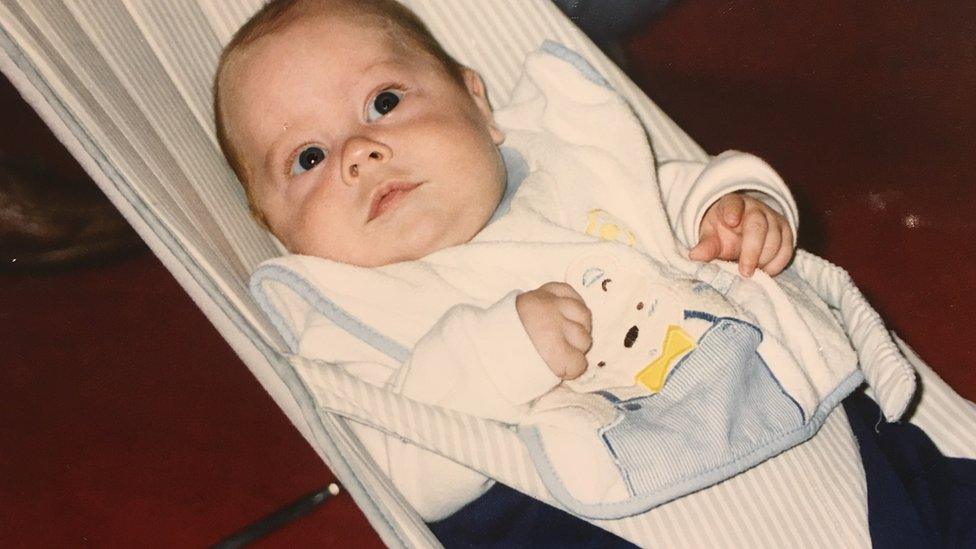
Within 30 minutes of the death being reported, it was being broadcast in TV news bulletins
Diamond was then at the height of her fame, presenting TV AM with Nick Owen and interviewing the great and the good, from Margaret Thatcher to Princess Diana.
Her tragedy provoked intense media interest - to the extent she and her husband were chased by a photographer on the way to the funeral parlour to see their dead son.
Distressing photographs taken of the family grieving at Sebastian's funeral were shown as examples of press intrusion during the Leveson Inquiry.
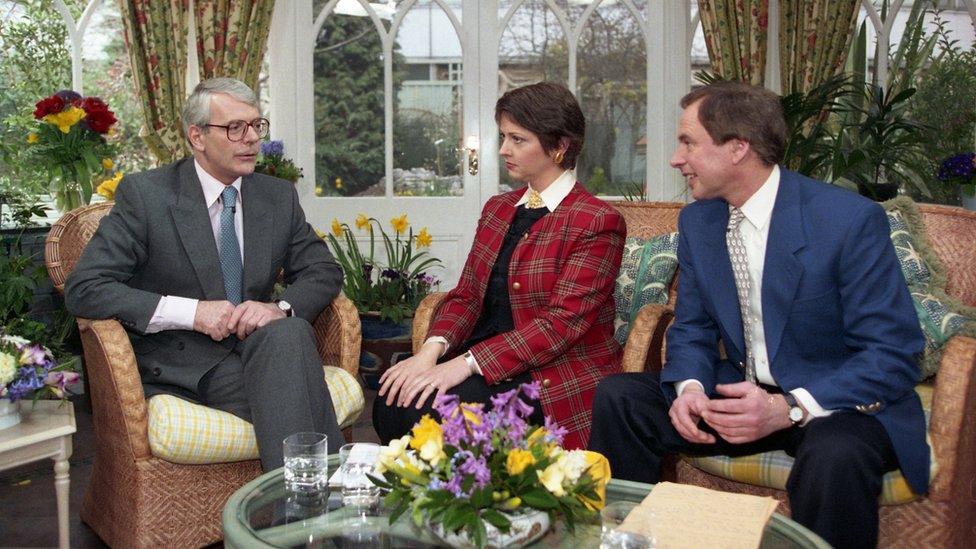
Anne Diamond was at the height of her fame in the early 90s.
However, within days, Diamond realised her fame could be a way to ensure her son had a legacy, to stop his death being in vain.
She said she rapidly became angry on Sebastian's behalf.
"Here was a life and nobody cared," she said.
"So many people came up to me and said 'cot death is just one of those things... you have to get over it'.
"I think from that moment I started to feel very angry... I didn't like the apathy, I didn't like the complacency... that some babies just die for no reason."
It is now widely known that the best way to prevent cot deaths is to place babies on their back to go to sleep.
But for decades, experts said infants should sleep on their tummies - and thousands are believed to have died as a result. (The practice was originally popularised by 1950s parenting expert Dr Benjamin Spock, who wrote a best-selling childcare manual which said it could prevent reflux.)
Four-month-old Sebastian had been placed on his tummy to go to sleep, as health professionals advised at the time.
Diamond began to investigate research into sudden infant death syndrome (SIDS) and about a week after her son's death visited the Foundation for the Study for Sudden Infant Death, now known as the Lullaby Trust.
It was there she heard the words "sleep position" for the first time in connection with cot death.
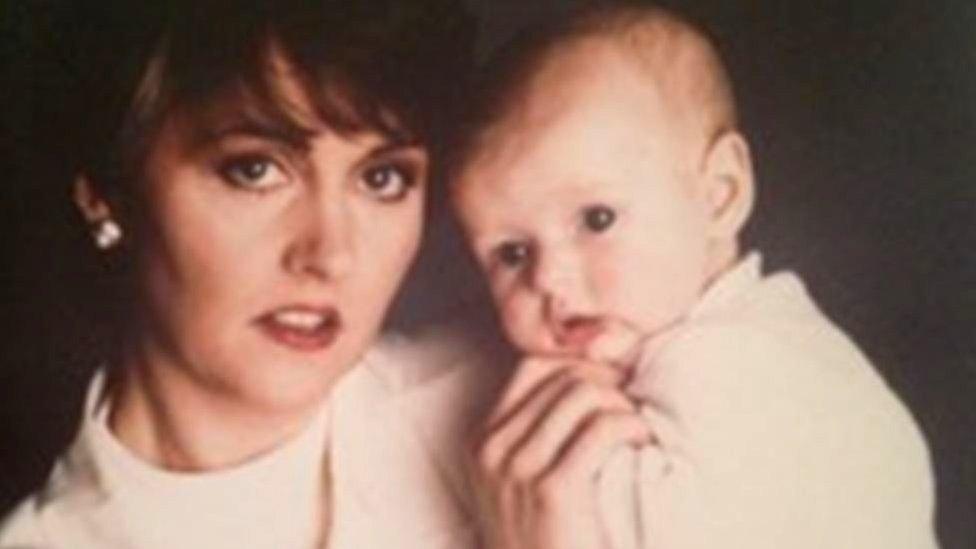
The presenter realised her fame could be a way to ensure her son had a legacy
The death of Diamond's baby had happened to coincide with research being published for the first time in the Netherlands, New Zealand and the UK, which showed conclusively that putting babies to sleep on their backs was a major factor in reducing infant mortality.
She also discovered a paper had been published in New Zealand following a nationwide study of more than 2,000 infants over three years which found infants placed on their backs to sleep were at the lowest risk of SIDS. , external
Within weeks Diamond flew out to the country.
"Once they told me in New Zealand very clearly that sleep position was that important, and they'd started campaigning to get mothers in New Zealand to turn babies on to their backs... and that was saving lives all over their country, I knew what I had to do was go back to Britain and get that message out," she said.
"I knew it wasn't enough for me to do it... I was just a famous woman, I knew I had to get the British medical establishment to change its mind.
"And that was going to be the most difficult thing of all."
Diamond's fame secured her a meeting with the chief medical officer and the health secretary Virginia Bottomley, but she found quite a contrast to New Zealand's approach, where the research produced by doctors had been acted upon immediately.
"All I came across was this sort of complacency again," she said. "I couldn't get them to promise me anything. They said they would look at the data.
"I knew tonight five more babies were going to die and the next night the same again.
"How could they let those babies die while they looked at the data?
"I had to raise a stink to get them to move faster."
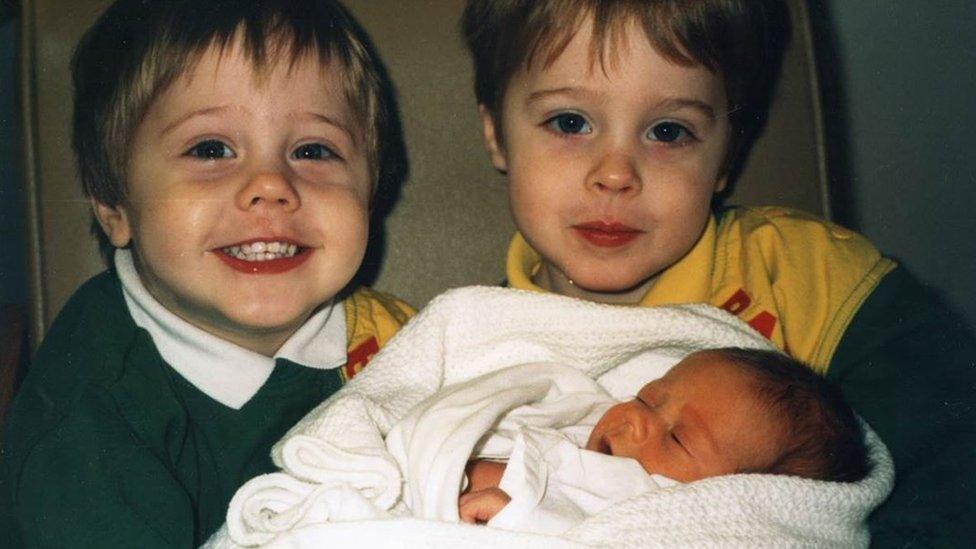
Diamond worked on a documentary on SIDS which aired on ITV's This Week in December 1991
Diamond flew a cot death expert to the UK from New Zealand and arranged for her to meet Mrs Bottomley.
From that meeting a working party was set up to advise the government.
Diamond also started working on a documentary on SIDS, which aired on ITV's This Week in December 1991.
Having secured the support of health professionals in the UK, she began her Back to Sleep Campaign, having raised funding for advertising and enlisted parenting charity the National Childbirth Trust (NCT) to drive home the message that babies should be put to sleep on their backs.
However, it was not until 1993 that the government launched its own £3m campaign to reduce SIDS.
Diamond said one of the most shocking discoveries she made was that if she had been living in Bristol, she probably would have been advised to put her baby to sleep on his back, as the city was part of a control group testing out the new theory.
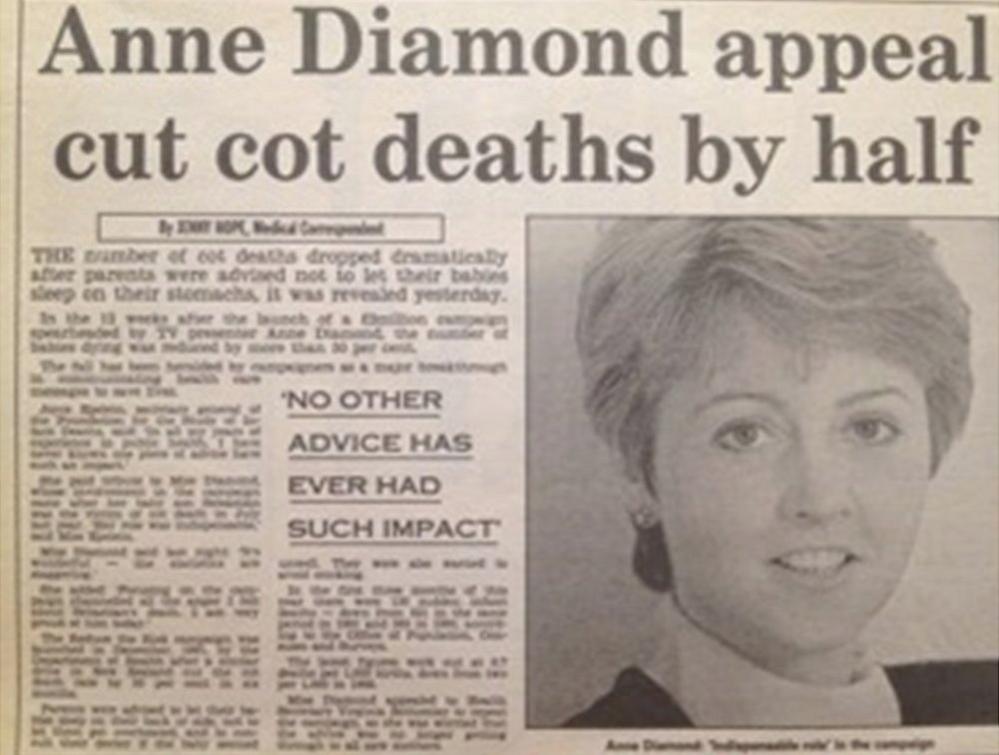
Diamond started work on her campaign soon after the death of her son
She said: "I didn't blame myself. I just think 'why didn't I live in Bristol?' I trained in Bristol, I was at the BBC in Bristol.
"If I stayed living in Bristol, Sebastian would still be alive.
"Instead I was in wider Britain where we were kept in ignorance of life-saving advice."
The Lullaby Trust says putting babies to sleep on their back and people not smoking around them are the single most significant factors in preventing cot death.
It said in 1989 there were 1,545 SIDS cases in the UK. This fell to 647 in 1992, the year after the Back to Sleep campaign launched in 1991.
In 2014 there were 128 SIDS cases, testimony that the campaigns aimed at reducing SIDS worked.
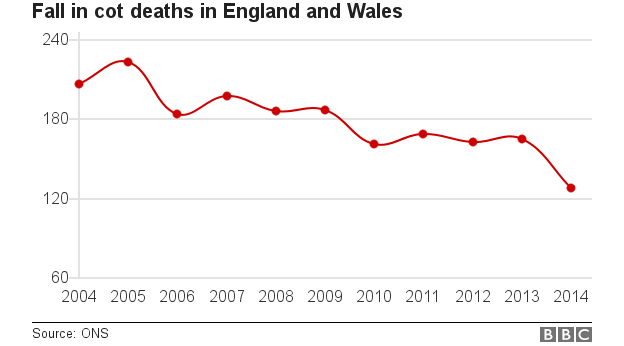
"It was one of the most successful public health campaigns ever," said chief executive of the Lullaby Trust Francine Bates.
"People did change their behaviour. It's so simple.
"Without Anne Diamond that wouldn't have happened as quickly as it did. Because she was a celebrity, a public figure, people were shocked and hurt for Anne, she was a successful journalist, she was able to mobilise the media and politicians very successfully."
Diamond's campaign meant the UK was one of the first countries in the world to adopt the new guidelines on infant sleep. Ms Bates said the NHS was "very influential" worldwide, as similar campaigns were rolled out in the United States and in Western Europe.
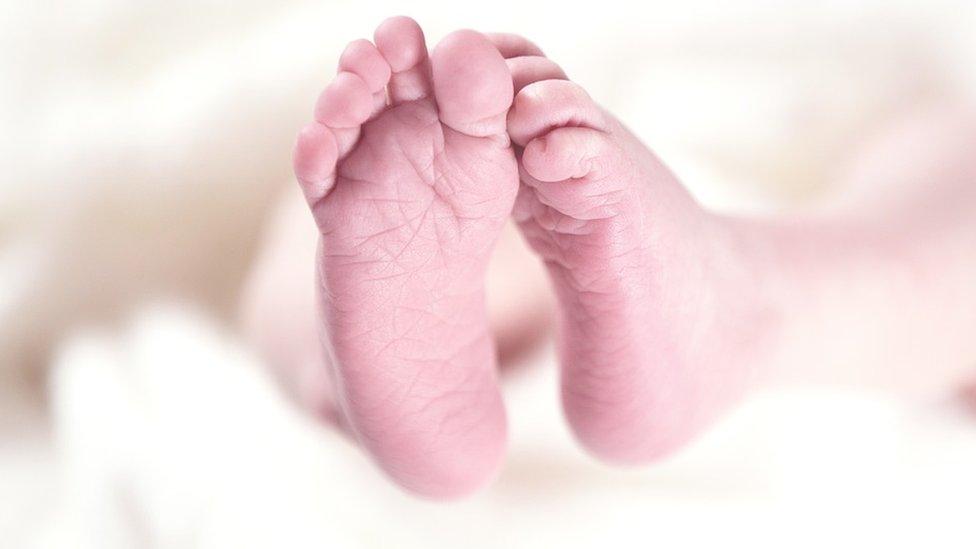
A year after the Back to Sleep campaign, the number of SIDS cases fell from 1,545 in 1989 to 647 in 1992
Diamond said she regarded the Back to Sleep campaign as Sebastian's legacy, but added: "I know that truly it's not just his.
"I've met so many cot death parents over the years who lost their babies and weren't able to achieve what I managed to achieve, because their babies died at the wrong time. When you look at it my baby died at a time a breakthrough was being made.
"What it needed was a famous person to come along and say 'OK I'll spearhead the campaign'.
"I see it selfishly as my little boy's legacy... but it's the legacy of so many other little babies and their parents who've given up every Saturday to stand outside their local supermarket shaking tins to raise money for research.
"I see it in two minds. I'm terribly proud of the campaign. I'm very proud of the role the media played in it."

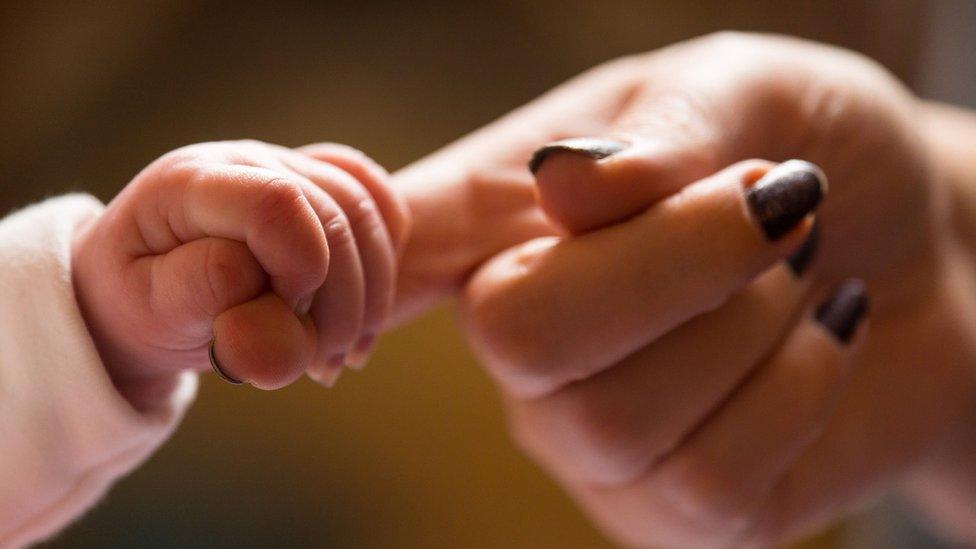
Lowering the risk of cot death
Always place your baby on his or her back to sleep
Avoid smoking when pregnant and near the baby after it is born
Do not let your baby get too hot
Use a firm, flat and waterproof mattress for your baby
Never sleep on a sofa or in an armchair with your baby
Don't sleep in the same bed as your baby if you smoke, drink or take drugs or are extremely tired
Don't cover your baby's face or head while they are sleeping or use loose bedding
Source: The Lullaby Trust

Listen to Sebastian's Story on Monday 21 November at 10:00 GMT on BBC Radio Berkshire.
- Published10 August 2016
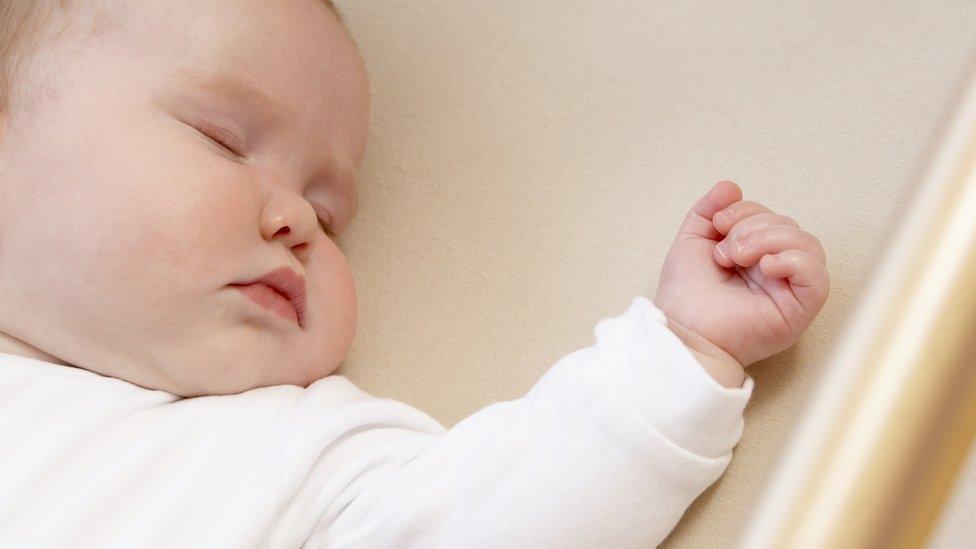
- Published17 March 2012